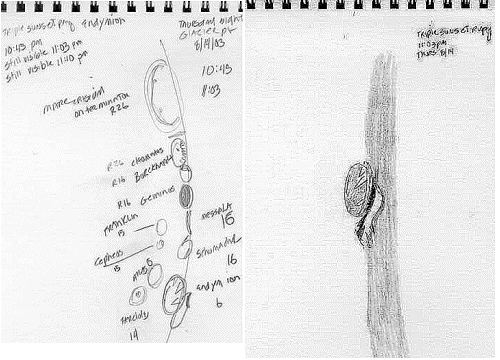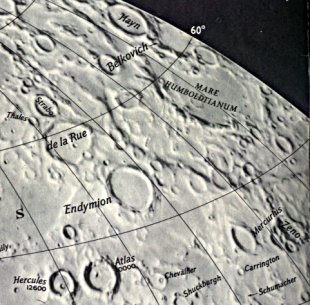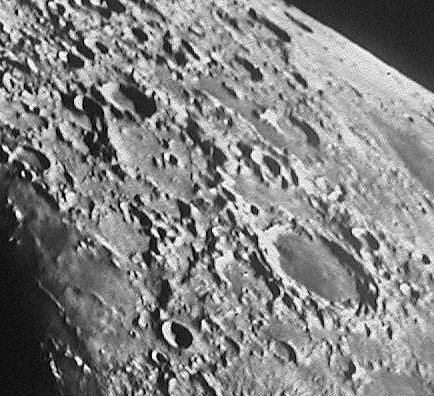
Date: Thu, 04 Sep 2003 15:34:43 -0700 From: Jane Houston Jones Subject: Sunset ray seen in crater Endymion
...on August 14th, 2003 Mojo was touring the lunar terminator with our f/9 AP180EDT, and he hollered out that there was a triple sunset ray visible. This was at 10:45 p.m.or 6:45 UT 8/15/03. We were at Glacier Point, Yosemite National Park, Latitude 37 43.741 N, Longitude 119 34.330 W, elevation 7,200 feet. We all took a look and sure enough, three bright wedges of light were sharply piercing the pool of dark shadow filled basin of a large crater. Try as I might, I couldn't figure which crater it was, so I sketched the entire terminator and other nearby craters so I could do the research later. I spent an hour with Mr. Rukl's Atlas back at the campsite the next day. The triple sunset ray was in the crater Endymion, identified on Rukl 7. I must say the Rukl paragraph on this crater is wonderful.
Jane and Mojo
